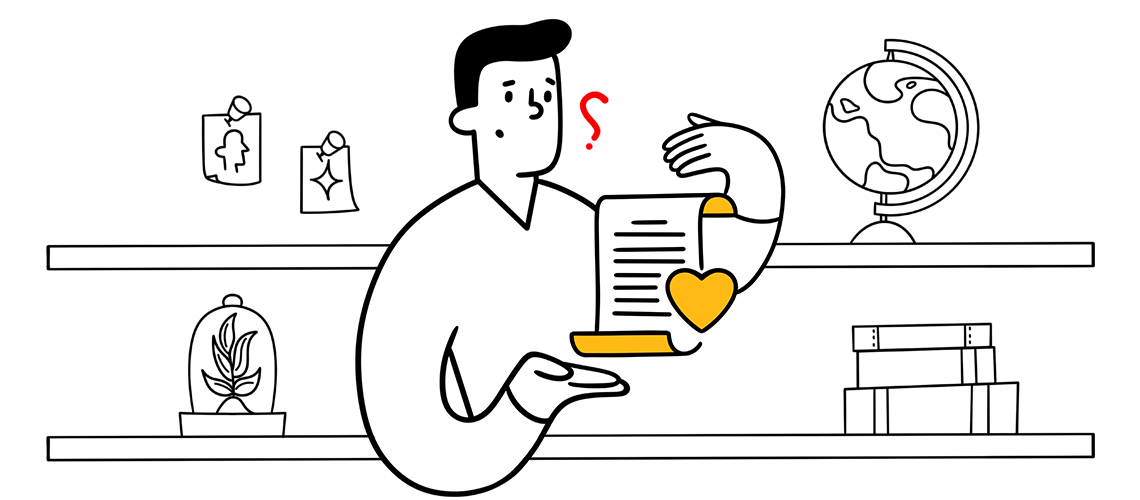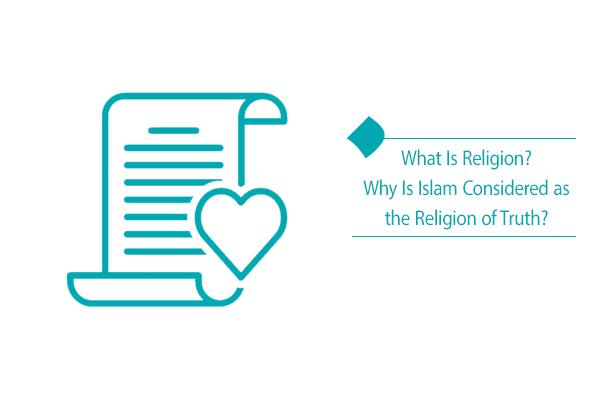What Is Religion, and How Does the Religion of Truth Differ from Other Faiths?
We all have encountered the word religion at least once in our lives, yet few can provide a precise and accurate definition of the true religion. Some of us view religion as a traditional set of customs inherited from our ancestors; others see it as a collection of restrictive laws that determine our fate in the hereafter. Some may consider themselves religious individuals, claiming to have a clear understanding of religion.
The truth is that we often do not use words correctly and precisely, and this applies to the term “religion” as well. The definitions provided by fields such as anthropology, mythology, or psychology are far removed from the essence of religion. Consequently, our understanding of religion differs from what it must be. Regardless of whether we practice religion or not, we likely have not reached a correct definition or understanding of the true religion, as we do not view religion from the perspective of our Creator.
We easily label various lifestyles as religion, thus defining different categories and types of religion. Just as we consider Islam a religion, we also apply the term to Hinduism, Buddhism, and others. In fact, there may be as many interpretations of religion as there are people on this planet, while God has specified the precise and correct use of religion for us. In this lesson, we aim to provide an accurate definition of religion and explain why Islam is called the religion of truth.

A Correct Definition of the Religion of Truth
Contrary to popular belief, we do not see religion as merely a way of life. Religion is our life plan, and since God created us and is aware of all the stages of our existence, our life plan can only be defined by Him. God calls this singular and specific plan Islam. Therefore, we define only one religion for ourselves and consider other worldviews, plans, and lifestyles that are labeled as religions to be outside the framework of religion.
If we seek advice and a plan for entering a project, we naturally value the consultation of someone who is aware of the current status of the project, its history, and its future prospects. Religion is a structure created by our Creator, taking into account our past, present, and future, and has shaped our human dimension based on this framework. The religion of truth is, in fact, our innate human nature or fitrah, based on which we have been designed and created. Thus, when we become familiar with our fitrah, we feel a connection to religion.
In fact, reaching a correct definition of religion is impossible without knowing all the dimensions of our existence. If we do not know the inanimate, vegetative, animal, intellective, and supra-rational dimensions of our existence, we perceive religion through our animal dimension and view it as a set of restrictive rules. Like a student who seeks every opportunity to escape from books and school without considering the goals set for their education, we see religion as a limiting factor. However, the primary function of religion is to satisfy our desire for infinity, and it is related to our human aspect. While adhering to religion brings us joy and peace in this world, the main significance of religion and following it becomes evident only after our birth into the hereafter. For every action, there is a rule and method defined, and in truth, religion is the method and program that teaches us how to nourish our supra-rational dimension and connect with God.
A religion that possesses these frameworks and characteristics is called Islam wherever it exists. Anyone who follows this method and ultimately reaches human perfection that God envisions believes in the truth of Islam. Since such a person has a correct existential structure that aligns with religion and fitrah, he does not resist when religion is presented to him and accepts it easily.
To clarify, compare a child raised in an organized and law-abiding family with a child who grew up in a chaotic and aimless environment; which one do you think will more easily accept social laws in adulthood? Naturally, it will be the one who has been raised with these principles since childhood and does not feel alien to the law. Similarly, accepting Islam, the true religion, is easier for someone whose existential structure aligns with religion.
What Is the Purpose of Religion?
The function and purpose of religion is not to separate us from the material world; otherwise, we would label any mystical method or school that could detach us from the world as the true religion. While the greatest purpose of Islam or the religion of truth is to address our supra-rational and eternal needs and nurture us, this religion is not indifferent to our world. Imagine you have a destination in mind and want to reach it. You would likely agree that reaching this destination without considering the means and path to get there is impossible. Thus, religion also considers the lower dimensions of our existence and has laws to improve them, but only to the extent that it ensures our well-being in reaching the destination. Therefore, if religion is viewed as a method that leads us to the truth, it also provides the best answers for our intellective, animal, vegetative, and inanimate dimensions, as it has been sent by a Master Planner and Creator who knows our destination and purpose well, as well as our weaknesses and strengths on the path to reaching that destination.
However, a question may arise in our minds: Why is Islam called the religion of truth? Is the God who sent Judaism or Christianity different from the God who named the religion Islam? The answer is no. The truth is that religion has always been one in the eyes of God, meaning the same religion that God shaped human fitrah according to. The point is that humanity was not capable of accepting religion in all its details at first. In fact, God named the religion of truth Islam when He defined all its frameworks and presented the most complete form of the plan necessary for humanity to reach his ultimate goal.
In this lesson, we defined the religion of truth and stated that religion is one in the eyes of God and it is Islam. God, the Master Planner and Creator, who is aware of our past, present, and future, revealed religion and designed our fitrah based on it. In reality, the primary function of Islam or the religion of truth is to address our supra-rational needs and lead us to Allah.
What is your opinion about religion? Have you ever considered it from the perspective of how God views religion?

